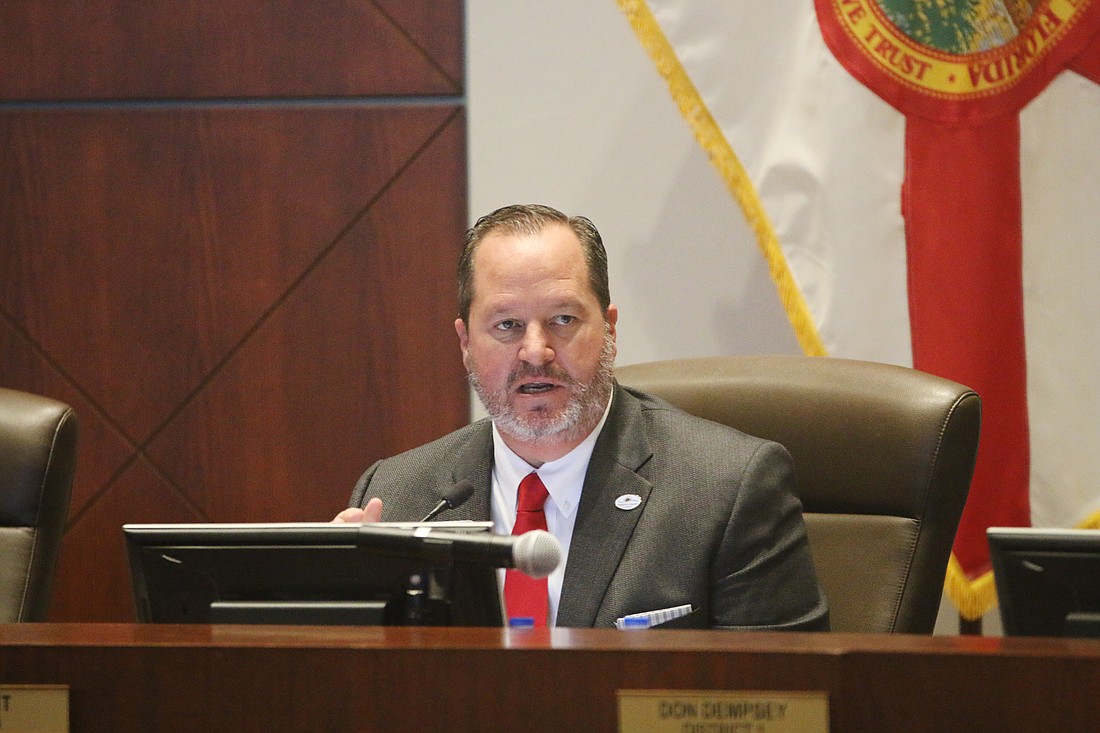- December 15, 2025

A request to help fund more school resource deputies was unanimously denied by the Volusia County Council, which felt that not only was the request a couple months late because the fiscal year’s budget has been passed, but that Volusia County Schools also has enough money in its budget reserves to cover the cost.
“They chew through tax dollars, and their budget is larger than ours,” County Councilman Troy Kent said at a Nov. 7 meeting. “They have more than enough in reserves to cover this ask, to make our schools safer. They don’t want to spend their money. They want to spend our money.”
The Volusia County School Board submitted a request to the Volusia Sheriff’s Office for $762,011.35 to add seven school resource deputies and one supervising school resource sergeant to replace school guardians at eight middle schools: Creekside Middle School, Deltona Middle School, Galaxy Middle School, Heritage Middle School, Holly Hill School, Silver Sands Middle School and Southwestern Middle School.
According to the county, the current contract mandates that the school board pay 55% of the total costs for school resource deputies. VSO pays the remaining 45%. The funding request would have resulted in an additional $342,905.11 expense for the Sheriff’s Office — which, per Florida law, can bill the county for services rendered or performed for governmental agencies. The money, if the funding request had been approved, would have come from the county’s reserves.
Volusia County Schools has $26.8 million in reserves.
In a statement, the district said it was disappointed that the council chose not to support the request.
“The discussion that took place this morning regarding the district’s budget and reserves was not relevant to the financial considerations of the interlocal agreement,” the district stated. “VCS previously had school resource deputies in these seven schools, which were removed during the pandemic and replaced with school guardians due to staffing issues. VSO has supported this initiative and assured VCS that they had the personnel to support these safety measures in our schools if the funding was approved.”
The district was seeking the additional school resource deputies in hopes of increasing safety on the seven middle school campuses.
This year, VCS reported 718 alcohol, drug or tobacco related incidents in middle schools, as well as 647 hitting, striking or fighting incidents in middle schools, according to data included in the presentation.
Between Aug. 14 and Oct. 6, there were:
This year, the district added two school resource officers: One at River Springs Middle School in Orange City and one at New Smyrna Middle School in New Smyrna Beach. Both schools saw a decrease in incidents during the first quarter of classes. Both are funded in a 50/50 split between the cities and the district, Kent said.
Kent, an assistant principal with VCS, argued that funding the request would mean residents in municipalities — like Ormond Beach and Daytona Beach — whose tax dollars already help fund a school resource officer would have to “pay twice.”
He also said he was disappointed that the district would make a funding request in the “13th hour” after the budget and tax rate has been set for the current fiscal year.
“We worked really, really hard collectively during our budget session to get our tax rate as low as we could, and now in November the school district comes to us to help them fix their problem,” Kent said.
At the meeting, the district said that if the funding wasn’t approved, they would continue to have school guardians at each of the middle schools.
Councilman Jake Johansson said he found it interesting that the Volusia County School Board prompted this request and highlighted its importance, but if the council turned them down, they’d continue operating as usual.
“So it’s important if somebody else pays for it but if [the school district has] to pay for it, it’s not so important,” Johansson said. “I don’t believe that to be honest negotiations.”
Deputy Superintendent Rachel Hazel said at the meeting that while the reserves may seem to be a large amount, the council wasn’t taking into account federal coronavirus relief dollars, known as ESSER funds. The district used ESSER funds for $46 million in reoccurring operating expenses, and the money will run out by the end of the 2023-2024 school year.
“We are, in the next year with ESSER funding going away, going to incur a lot of recurring expenses,” Hazel said.